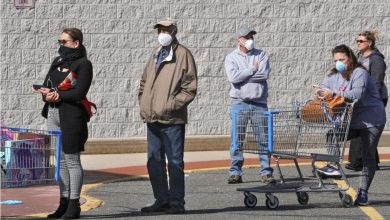Food Hygiene Practices Reduce Foodborne Diseases – Dietician at Effia-Nkwanta

Madam Lawrencia Dzidzienyo, Dietician at the Effia-Nkwanta Regional Hospital (ENRH) has opined that food hygiene practices in the food and agricultural sectors help to reduce the emergence and spread of foodborne diseases as unsafe food containing harmful bacteria, viruses, parasites or chemical substances causes more than 200 diseases.
She therefore advised the public to check the state of the products they buy, lookout for expiry dates, manufacturing date, storage condition, uses or indication, and make sure they are not dented, bloated and without defaced markings or tampered markings.
She noted that food safety is a shared responsibility between governments, producers and consumers and for that matter everybody has a role to play from the farm to table to ensure the food we consume is safe and will not cause damage to our health.
Madam Dzidzienyo made the remarks in an interview with the GNA as part of this year’s celebration of World Food Safety Day, which was aimed at drawing attention and inspiring action to help prevent, detect and manage foodborne risks, contributing to food security, human health, and sustainable development.
She said food safety is ensuring that food was safe through every stage, from production to harvest, processing, storage, distribution, all the way to preparation and consumption and said it was more important now than ever that we treat ourselves with care by only consuming healthy products that can build our immunity, so that we can live healthy and happy lives.
She announced that it was important to eat safely as foodborne illnesses are usually infectious or toxic in nature and often invisible to the plain eye and usually caused by bacteria, viruses, parasites or chemical substances entering the body through contaminated food or water.
Madam Bragoe Osei, Nutrition Officer at the Jubilee Children’s Hospital on her part said it was important to maintain proper hygiene in the kitchen by regularly washing utensils and tools after use, and also rinsing fruits and vegetables properly especially, the lids of canned goods before opening them.
She said it was proper to always put your food in the fridge or freezer within two hours after cooling or buying from the market especially, when it is hotter outside.
Touching on making food safe, she enlightened that there should be frequent hand washing before handling food, cleaning the surface or sanitizing the area to keep the food and cleaning vegetables with vinegar or salt water before cooking them.
“It is better to use vinegar or salt water to clean them than using sponge and other hard objects to scratch it because they wash away the fiber in them. Food should also not be exposed to excessive heat”, she emphasized.
Madam Bragoe further advised that raw foods should be kept separate whereas meat, sea foods and egg should be kept away from other foods as the germs can spread from one food to another.
Source: GNA




